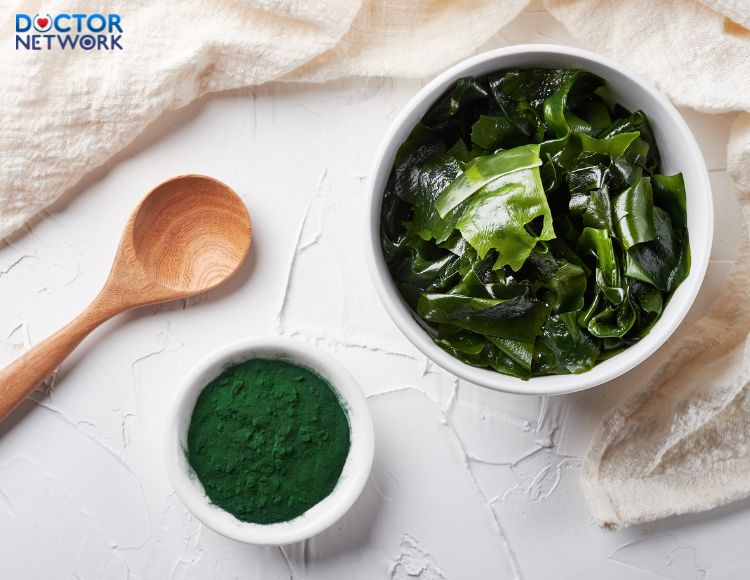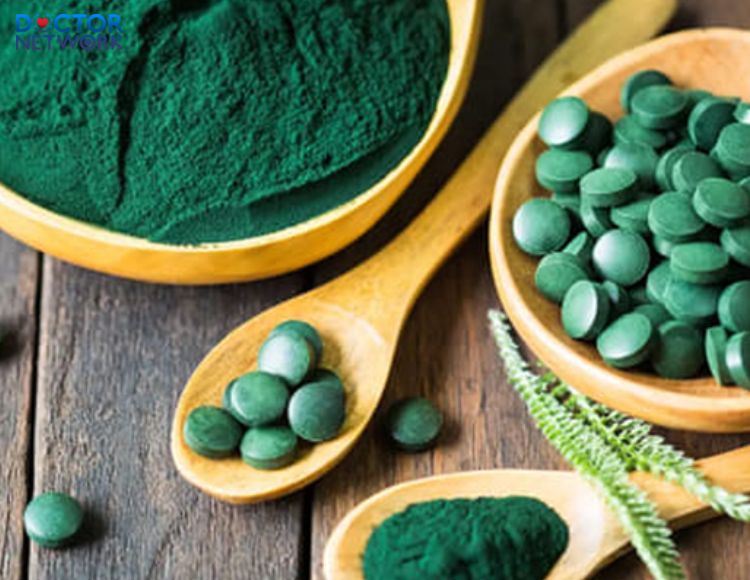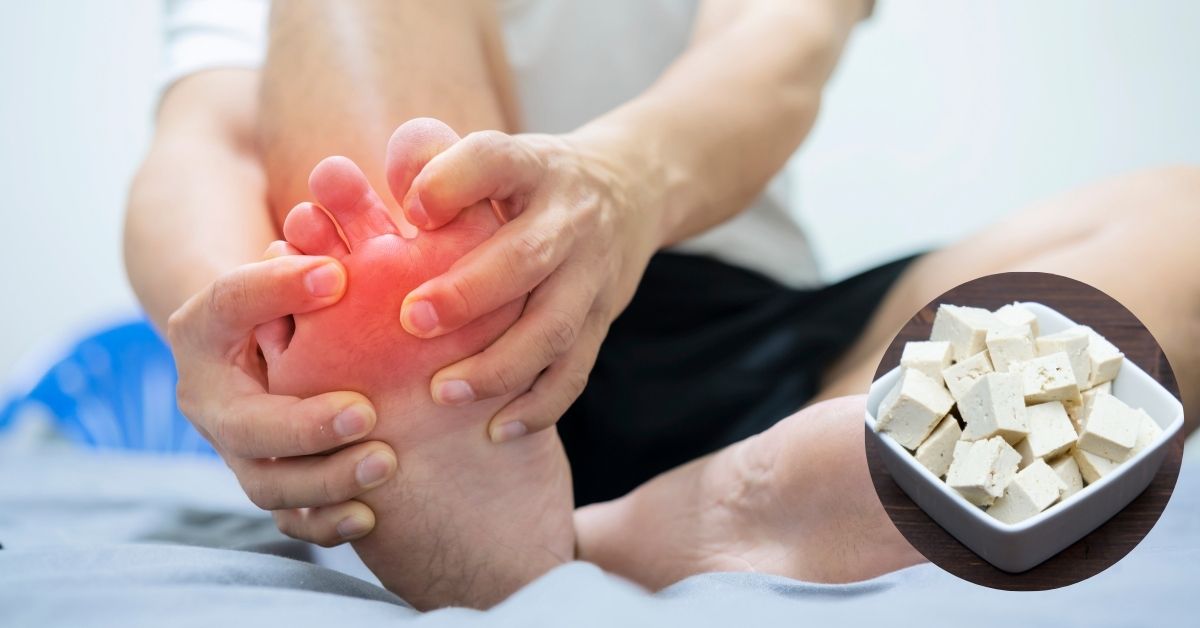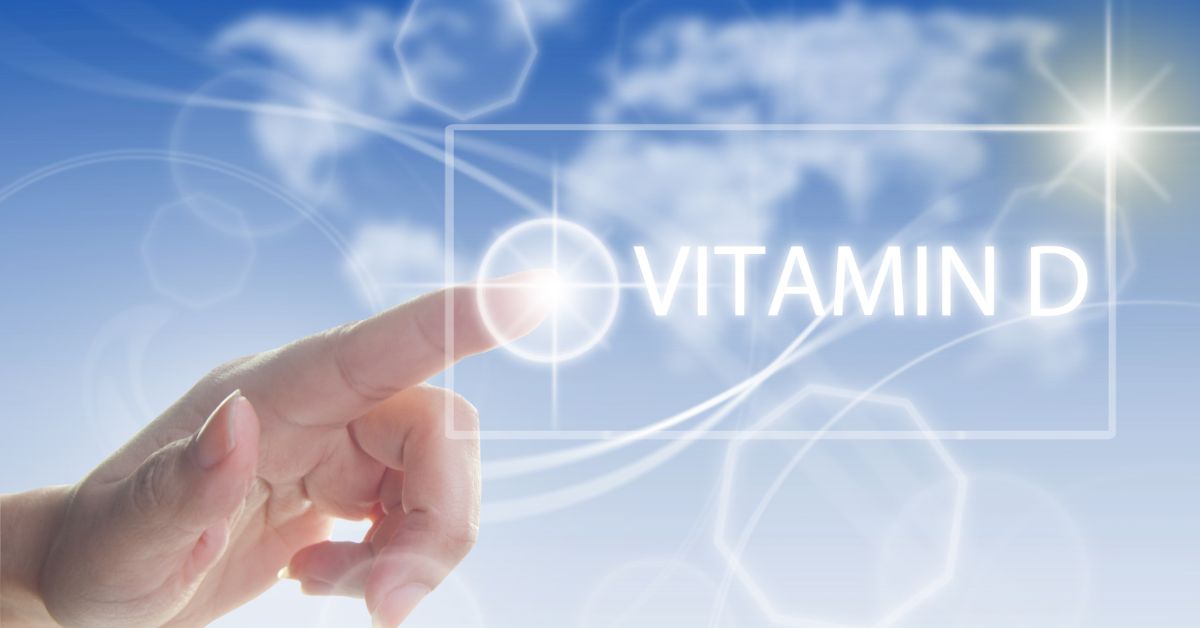Seaweed has emerged as a popular superfood, offering abundant nutritional content with scientifically proven health benefits. However, this supplement is not suitable for all populations. This review provides a detailed “Who should not drink seaweed“, potential adverse effects, and important considerations for seaweed consumption.
Nutritional Value
Seaweed, historically recognized as a “golden food” in both traditional and modern medicine, contains over 60 essential nutrients. However, recent research by the Asia Pacific Nutrition Association (APNA) indicates that certain populations must absolutely avoid this product.

Seaweed, known as “golden food” in traditional and modern medicine
Table 1: Nutritional Composition of Seaweed
| Nutrient | Content (per 100g) | Primary Function |
|---|---|---|
| Protein | 20-25g | Muscle development |
| Iodine | 232-2984μg | Thyroid support |
| Omega-3 | 1-2g | Cardiovascular protection |
| Iron | 2-3mg | Erythropoiesis |
| Calcium | 168mg | Bone fortification |
Who should not drink seaweed?
1. Thyroid Disease Patients:
- Risk: Thyroid dysfunction due to high iodine content
- Manifestations: Tachycardia, insomnia, hand tremors
- Alternative: Other plant-based protein sources
2. Pregnant and Lactating Women:
- Risk: Potential impact on fetal development
- Recommendation: Mandatory obstetric consultation before use
Table 2: Warning Signs for Immediate Discontinuation
| Symptom | Severity | Required Action |
|---|---|---|
| Urticaria | Mild | Discontinue and monitor |
| Dyspnea | Severe | Immediate emergency care |
| Abdominal pain | Moderate | Medical consultation |
| Dizziness | Moderate | Discontinue and rest |
Critical Safety Guidelines
Safety checklist:
- ✓ Verify product origin
- ✓ Review composition and expiration date
- ✓ Initialize with minimal dosage
- ✓ Monitor physiological response
- ✓ Consult healthcare professionals
Frequently Asked Questions
Can pregnant women consume seaweed?
Pregnant women should avoid independent seaweed (Spirulina, Chlorella) consumption due to:
- High iodine content potentially affecting fetal development
- Possible heavy metal contamination
- WHO and FDA recommend mandatory obstetric consultation

Pregnant and lactating women should consult their obstetrician before use
Can Graves’ disease patients consume seaweed?
Patients with Graves’ disease (hyperthyroidism) are absolutely contraindicated due to:
- High iodine content (2000-3000 µg/100g)
- Risk of symptom exacerbation (tachycardia, tremors)
- Vietnam Endocrinology Association warns of disease flare-ups
What are the dangerous side effects?
Serious adverse effects include:
- Allergic reactions (rash, respiratory distress)
- Gastrointestinal disturbances (abdominal pain, nausea)
- Anticoagulant interactions
- APNA statistics indicate 5-10% of users experience side effects
Can renal failure patients consume seaweed?
Renal failure patients should avoid seaweed due to:
- High potassium and phosphorus content
- Risk of toxin accumulation
- Vietnam Nephrology Association warns of disease exacerbation
What is the recommended duration of use?
Usage guidelines:
- Avoid continuous use beyond 3 months
- Implement 1-2 month intervals between courses
- Recommended adult dosage: 2-3g/day
- Ministry of Health and FDA recommend continuous monitoring
Do not use seaweed continuously for more than 3 months
Scientific Evidence
1. Fetal Impact Study:
- Title: “Spirulina Effects on Fetal Development and Congenital Malformation Risk”
- Institution: HCMC University of Medicine and Pharmacy & National Institute of Nutrition
- Published: 2019
- Key Finding: Correlation between high iodine content and fetal development risks
2. Drug Interaction Study:
- Title: “Interactions between Spirulina and Common Cardiovascular Medications”
- Institution: Bach Mai Hospital & Hanoi Medical University
- Published: 2020
- Finding: Potential medication efficacy alterations
3. Thyroid Disease Study:
- Title: “Iodine Content Impact in Seaweed on Graves’ Disease Patients”
- Institution: Central Institute of Endocrinology and Diabetes
- Published: 2021
- Conclusion: Contraindication for Graves’ disease patients
4. Renal Function Study:
- Title: “Seaweed Impact Assessment on Renal Function in Chronic Kidney Disease”
- Institution: Vietnam Nephrology Association
- Published: 2022
- Result: Absolute contraindication for end-stage renal disease
Conclusion
While seaweed represents a valuable nutritional source, its utilization requires careful consideration and selective administration. Understanding contraindications and adhering to usage guidelines ensures optimal benefit extraction while maintaining safety parameters.
Kiểm Duyệt Nội Dung
More than 10 years of marketing communications experience in the medical and health field.
Successfully deployed marketing communication activities, content development and social networking channels for hospital partners, clinics, doctors and medical professionals across the country.
More than 6 years of experience in organizing and producing leading prestigious medical programs in Vietnam, in collaboration with Ho Chi Minh City Television (HTV). Typical programs include Nhật Ký Blouse Trắng, Bác Sĩ Nói Gì, Alo Bác Sĩ Nghe, Nhật Ký Hạnh Phúc, Vui Khỏe Cùng Con, Bác Sỹ Mẹ, v.v.
Comprehensive cooperation with hundreds of hospitals and clinics, thousands of doctors and medical experts to join hands in building a medical content and service platform on the Doctor Network application.


























